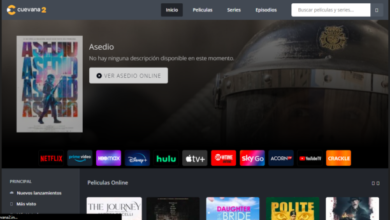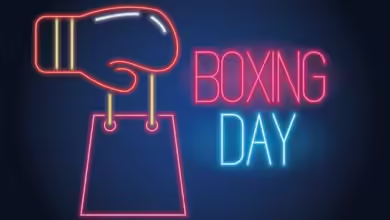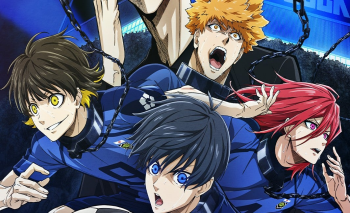A Rising Star: Nataly Cardenas, Winner of the MINEDU Call for Proposals

Introduction:
When Nataly Cardenas heard about the MINEDU Convocatoria, a government initiative to promote educational innovation in Peru, she knew she had to participate. With a background in education and a passion for making learning accessible, she poured nataly cardenas ganadora convocatoria minedu her heart into her proposal. Little did she know, her project would rise above hundreds of others, earning her the top prize in one of Peru’s most prestigious educational competitions. In this article, we’ll dive into who Nataly Cardenas is, the significance of the MINEDU initiative, and why her proposal stood out among the rest.
Who is Nataly Cardenas?
Nataly Cardenas is more than just a name making nataly cardenas ganadora convocatoria minedu headlines in the education world. She’s an educator, innovator, and visionary who’s worked tirelessly to make education more engaging and impactful. Before winning the MINEDU Convocatoria (MINEDU Call for Proposals), Nataly was already making waves in her community as a teacher with a keen eye for solving problems creatively.
Her dedication to teaching has always been paired with a deep belief that education should evolve to meet the needs of the modern world. She’s someone who understands that traditional methods don’t always work for every student, and that’s where her passion for innovation comes in.
Background and Experience
Nataly studied Education Sciences at a top university in Peru, gaining not only a degree but also a wealth of knowledge that she’s applied to her work. Her unique mix of academic rigor and real-world experience has shaped her approach to problem-solving in education.
She’s worked on several educational projects, ranging from digital literacy for children in rural areas to interactive curriculum development. These experiences prepared her for the challenge that the MINEDU Convocatoria would present.
What is the MINEDU Call for Proposals?
The MINEDU Convocatoria, organized by Peru’s Ministry of Education (MINEDU), is a national competition aimed at encouraging innovative solutions to the nataly cardenas ganadora convocatoria minedu country’s educational challenges. Every year, teachers, researchers, and education professionals are invited to submit projects that could potentially transform how students learn and how teachers teach.
The Purpose
The main goal of the MINEDU Convocatoria is to support and finance innovative education initiatives that align with the country’s broader objectives for improving educational quality. Some focus areas include:
- Inclusion: Ensuring that marginalized communities have access to high-quality education.
- Digital Education: Leveraging technology to bridge gaps in learning.
- Curriculum Development: Creating more interactive, relevant, and culturally sensitive curricula.
The competition is fierce, with hundreds of submissions vying for recognition and funding.
Why It Matters
Education is at the core of national nataly cardenas ganadora convocatoria minedu development, and in countries like Peru, where challenges like poverty, inequality, and limited access to resources persist, innovation in this field is essential. The MINEDU Convocatoria provides a platform for educators like Nataly to pitch their ideas, receive funding, and potentially scale their projects to have a larger impact on the entire education system.
Nataly Cardenas’ Winning Proposal: A Game-Changer
You’re probably wondering—what exactly did Nataly Cardenas propose that made her stand out? Well, her project was nothing short of groundbreaking. Nataly developed a proposal that focused on improving digital literacy in underserved communities. But it wasn’t just about teaching kids how to use computers; it was about equipping them with the tools to navigate the digital world critically, responsibly, and creatively.
Key Elements of Her Proposal:
- Interactive Learning Modules: Nataly created digital lessons that were not only informative but also engaging. By using gamification techniques and storytelling, she was able to capture students’ attention and make learning fun.
- Focus on Inclusivity: Her project emphasized the importance of accessibility, ensuring that students from various socio-economic backgrounds could benefit. This meant developing resources that didn’t rely heavily on expensive technology and could work on low-cost devices.
- Teacher Training: Nataly understood that teachers were a crucial part of the equation. Her proposal included a component dedicated to training teachers on how to effectively integrate technology into their classrooms. After all, even the best tools are useless without someone who knows how to wield them.
- Community Involvement: She involved local communities in the project, ensuring that parents and guardians could support their children’s digital education. This helped bridge the gap between school and home, creating a more holistic learning environment.
Why It Won
It’s easy to see why Nataly Cardenas’ proposal was the one that took the top spot. It wasn’t just an idea—it was a fully fleshed-out project with real-world applications. Her approach addressed multiple facets of the educational system, from students to teachers to the community at large. The judges were particularly impressed with how she balanced innovation with practicality, making her project not only ambitious but also achievable.
What’s Next for Nataly Cardenas?
Winning the MINEDU Convocatoria has opened up a world of opportunities for Nataly Cardenas. With the funding she’s received, she’ll be able to scale her project and bring it to more schools across Peru. She’s already in talks with various local governments and NGOs to expand the reach of her initiative.
Expansion Plans:
- Partnerships with local municipalities to implement her digital literacy program in rural schools.
- Collaboration with international organizations for resource development and technological support.
- Pilot programs in neighboring countries that face similar educational challenges.
Nataly’s dream is to not only make an impact on education in Peru but also inspire similar initiatives across Latin America. With her drive and innovative spirit, she’s well on her way to achieving that.
FAQs about Nataly Cardenas and the MINEDU Convocatoria
1. What exactly is the MINEDU Convocatoria?
The MINEDU Convocatoria is an annual competition organized by Peru’s Ministry of Education. It aims to foster innovative educational projects that can improve the quality of education in the country. Winning proposals often receive funding and support to implement their ideas on a larger scale.
2. How did Nataly Cardenas win the MINEDU Convocatoria?
Nataly Cardenas won by submitting a project that focused on improving digital literacy in underserved communities. Her proposal included interactive learning modules, teacher training, and community involvement, which impressed the judges with its practicality and innovation.
3. What is the goal of Nataly’s project?
Nataly’s project aims to bridge the digital divide in underserved communities, ensuring that students have the skills they need to succeed in a technology-driven world. By focusing on inclusivity and teacher training, her initiative seeks to create a sustainable model for integrating digital literacy into the education system.
4. What are the next steps for Nataly’s initiative?
With the funding and recognition from the MINEDU Convocatoria, Nataly plans to expand her project to more schools across Peru. She is also looking to collaborate with international organizations to scale her initiative beyond Peru.
Conclusion: Nataly Cardenas’ Impact on Education
In a world that’s increasingly shaped by technology, the importance of digital literacy cannot be overstated. Thanks to innovators like Nataly Cardenas, Peru is taking steps to ensure that its students are prepared for the future. Her victory in the MINEDU Convocatoria is a testament to her dedication, creativity, and passion for education.
Nataly’s journey serves as an inspiration to other educators and changemakers who want to make a difference. With her project gaining momentum, it’s clear that the future of education in Peru is looking brighter than ever.
And who knows? Maybe the next big breakthrough in education will come from someone inspired by Nataly Cardenas’ incredible story!



